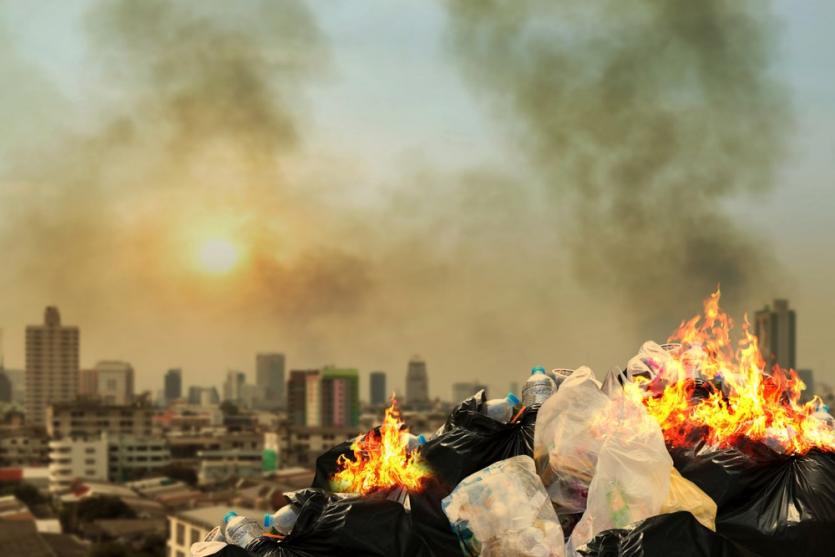The burning of garbage, especially plastics, is a major source of toxic air pollution
Plastic burning causes rise in emissions
By Patryk Krych | The World Daily | NOVEMBER 17th 2020
According to a coalition of environmental campaigners, the recent increase in disposing of plastics via the method of burning is resulting in a rise of carbon emissions being let out by the waste disposal industry.
A report issued by the World Economic Forum states that in 20 years’ time, the worldwide plastic production rates will have doubled. At the present moment, however, the recycling rates in Europe remain at around 30% and fluctuate wildly. The rates are even worse in the United States, where they remain around 9%. With this in mind, there are many dangers surrounding the product, given how difficult it is to get rid of.
When plastic ends up in a landfill site, it takes around 1,000 years to decay. A time throughout which it releases all sorts of dangerous toxins both into the ground around it, and into the air. This process is only sped along when the practice of burning plastic is put to use.
The coalition of campaigners who’ve expressed concern over the increased burning of plastics consists of such groups as the Friends of the Earth, Extinction Rebellion’s zero waste group, the UK Without Incineration Network (UKWIN), Greenpeace and the MP John Cruddas.
The coalition groups stated that by the year 2030, the carbon emission rates will see a rise of 10 million tonnes a year due to the governments pushing for waste disposal via incineration. The main cause for the influx of emission rates will come from the burning of plastics, which are infamously hazardous for the environment. Particularly single-use plastics.
“The UK will not be able to deliver on its net zero commitments unless the government intervenes in the waste sector,” said environmental economist Rembrandt Koppelaar, in reference to the 2016 Paris Climate Accords. “Without a change in government policy, we can expect large-scale expansion of energy-from-waste incineration to lock us into an additional 10 million tonnes of CO2 emissions per year by 2030, primarily from the burning of plastics.”
The problem is growing particularly significant in the UK, where plans for at least 50 incinerators are being processed for the future of the country’s energy development. Many are wondering whether or not the country will be able to reach its Paris Climate Accords goal.
The Climate Accords, written out in 2015 and officially signed by many countries in 2016 requires that all countries associated with the Accords reach carbon net neutrality by the year 2050. Each country has its own individual goals laid out for them, to reach by certain time frames. Under the climate bill, by the Committee on Climate Change, the UK is to reach a recycling level of 70% by 2030 in order to help reach its goals.






